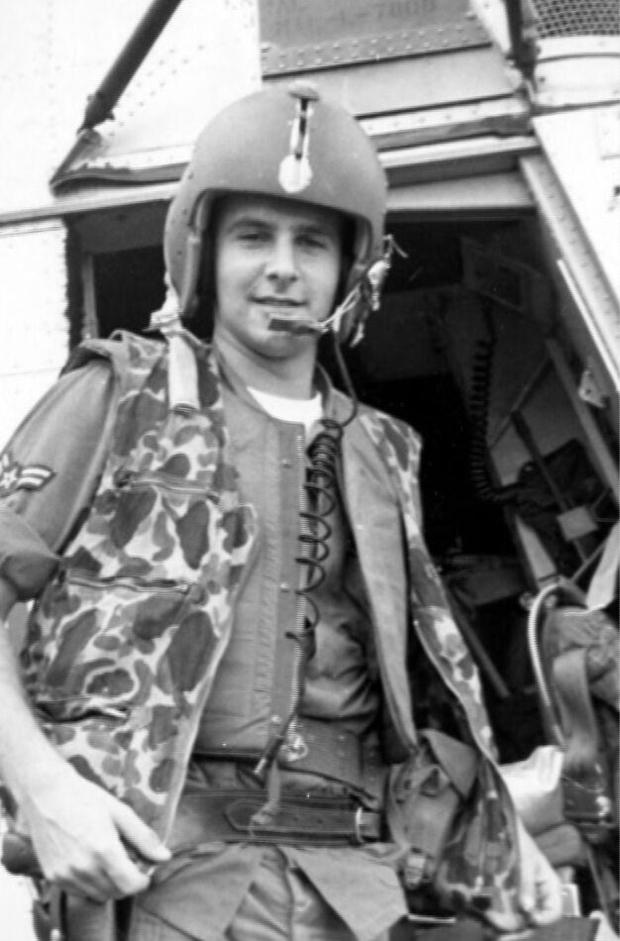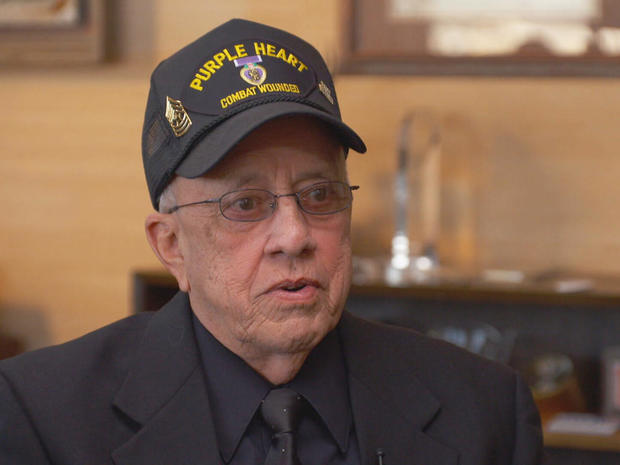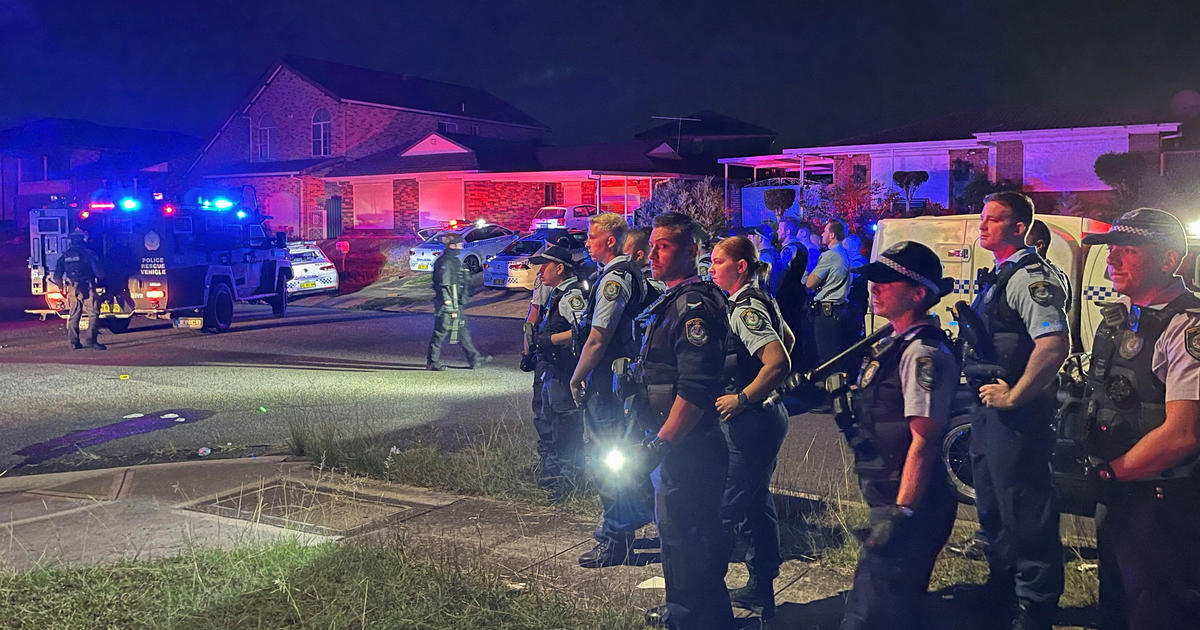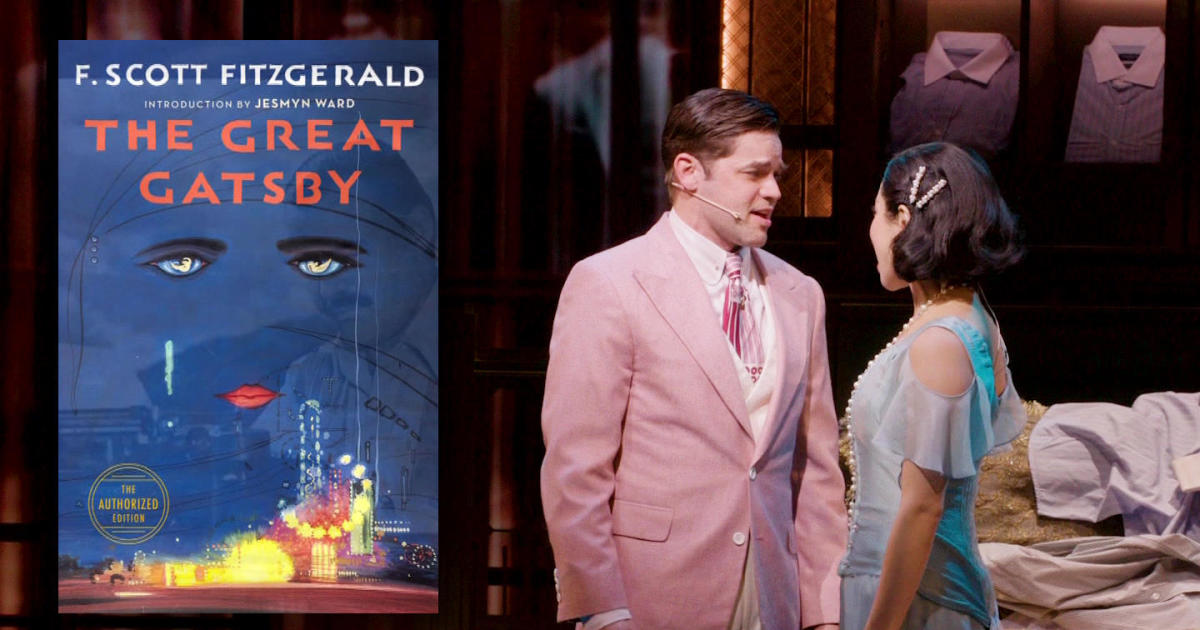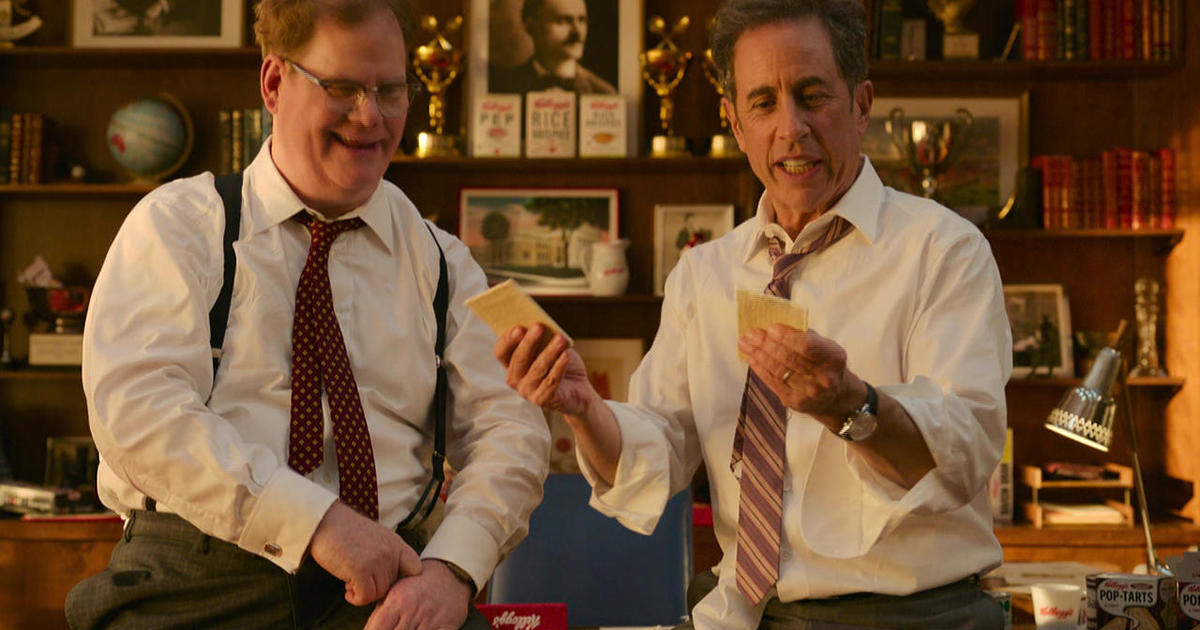A promise fulfilled: Filming a story of heroism in battle
You've probably never heard of William Pitsenbarger; he died more than half a century ago at the age of 21 saving Fred Navarro's life, among others'.
"If it hadn't been for Pitzenbarger, there ain't no doubt in my mind that I wouldn't be here," Navarro said.
In 1966 Navarro was a soldier in Charlie Company, which suffered 80 percent casualties in a Viet Cong ambush.
"This sounds like absolute hell," said CBS News national security correspondent David Martin.
"It was," he replied. "People moaning, praying, calling for their mothers."
As depicted in a new movie "The Last Full Measure," Pitsenbarger, an Air Force pararescue man, descended into that hell.
"It's all true, and most of it happened," said Todd Robinson, who wrote, directed and produced "The Last Full Measure." "It's really not about William Pitsenbarger; it's about the effect that he had on the living."
Navarro said, "I've had PTSD since that day. I've had some very bad times, but I always think of Pitsenbarger."
Pitsenbarger was lowered through the jungle canopy to treat and evacuate the wounded. "As he was coming down through the trees, I just happened to be the one that met him, and we became friends real fast," said Navarro.
Martin asked, "When you saw him coming down from that helicopter, what did you think?"
"I thought he was crazy!"
Navarro was wounded, and as depicted in the movie, Pitzenbarger dragged two dead soldiers on top of him as a shield. "He not only pulled those two dead Americans on top of me; he took his armored vest off of himself and put it on my chest," Navarro said.
"He gave you his flak jacket?" Martin asked.
"Uh-huh. Now, that's crazy. You've got that on for a purpose, but he gave it to me."
Pitsenbarger put nine soldiers on litters so they could be hoisted out of hell, but when his crew signaled it was time for him to come up, he refused.
"He didn't want to leave us," Navarro said. "In fact, at one point I asked him, 'Why are you here?' And he said, 'Because you're here.'"
Todd Robinson was just a kid when this happened. He learned about it 30 years later from the survivors of the ambush: "It was just phenomenal to sit with battle-hardened men who would weep openly in Beverly Hills restaurants or on military bases or wherever we might find them, because this was such a powerful experience for them."
Robinson made a promise to the men: "The promise was that I'd get this story told on behalf of them. It was as simple as that. It wasn't hard to make that commitment to them, although it didn't occur to me it was gonna take 20 years."
Working on an indie budget, he assembled A-List actors to play the veterans – Peter Fonda, in what turned out to be in last movie; Ed Harris; William Hurt; and Samuel L. Jackson, among others.
Martin asked, "How did you afford all those big names?"
"Well, nobody worked for their price," Robinson replied.
They were all old enough to know what Vietnam had done to this country, and to the soldiers who fought there. "To a man, they wanted to pay tribute to those sacrifices that people that they knew made on behalf of the rest of us," Robinson said.
No one was more moved at the first screening of the movie than Peter Fonda. Robinson recalled, "He couldn't speak. He literally couldn't talk to me. He was, just, the tears were running down his face."
Pitsenbarger was killed fighting off the Viet Cong. The survivors recommended him for the Medal of Honor, but it was downgraded to the Air Force Cross. But the story of William Pitsenbarger would not die.
What kept it alive? "The veterans kept it alive," Robinson said. "With the advent of the internet, a miracle happened, and the miracle was that the wives of a lot of these veterans started to connect through email. And they started to realize from one another that Pits never got the medal."
Whit Peters was Secretary of the Air Force in 1999. "Some of the paperwork had been lost," he said. "Some people thought it had been hidden by the Army."
Why? "I think there was a belief that this Operation Abilene, which is where Pitsenbarger was killed, was an embarrassment to the Army because they sent in this Charlie Company to go out and find the enemy, and what they found was an ambush and about 80 percent of that unit was killed or wounded in action."
Peters knew injustice when he saw it, and set out to fix it. "There was some real-time pressure, because Pitsenbarger's father was dying of cancer at the time," Peters said. "So, the hope was if we were gonna do this, we would get it done while his father was still alive."
There wasn't enough time left to schedule the traditional White House Medal of Honor ceremony. "So, I was lucky enough to have the honor fall to me," Peters said. In April of 2000, the ceremony was held at the Air Force Museum in Dayton, Ohio, with survivors and their families flown in from all over the world.
Some men hadn't seen each other since the battle in 1966. The place was full to overflowing with people whose lives Pitsenbarger had touched. "There's about 300 people there that would not be alive as of 2000 had their parents not been saved by Pitsenbarger," said Peters.
By then, Pitsenbarger's father was in a wheelchair, and had to be helped onto the stage. Peters said, "The loss of his son probably was the worst thing that ever happened to him, and so, while he was proud that his son had performed courageously in battle, it was still the worst thing that ever happened to him."
When Robinson reenacted the ceremony for "The Last Full Measure" (with Christopher Plummer as Pitsenbarger's father), he naturally brought in all the stars for the crowd scene. But he also brought in all the survivors of the battle, including Fred Navarro.
The speech that the actor playing Peters gave was the same speech Peters gave in 2000; the reenactment didn't need any more emotion than the original.
Navarro said, "I wish he was alive, he got the Medal of Honor, and that I could meet him."
Martin asked, "If you could meet him today, what would you say to him?"
"Thank you, Pits. Thank you for saving my life."
For more info:
- "The Last Full Measure" (Roadside Attractions)
Story produced by Mary Walsh.
